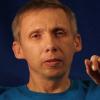I have been reading some studies lately, and I'm wondering what you all think as to how this does or doesn't contribute to an alternative habit for life extension and health. You've all heard about the whole 'fasting' thing. I always shunned it because 'detoxing' and 'resting your stomach' always seemed like unsupported ideas for health, but there are some interesting alternative explanations.
http://www.nydailyne...48p-78493c.html
While not an extended fast, once every other day is certainly notable. It certainly goes against the rhetoric common to most bodybuilding circles, and even present in CR, that you should be eating many tiny meals a day. These mice could eat as much as they wanted, one meal every other day.
Now, one problem I will note that is obvious in applying it to humans is, what kind of food the mice were eating, relative to them, and what food we eat relative to us. I'm supposing the mice ate pellets and high-fibre high-water content food, possibly filling them up very quickly. In considering these benefits for humans, we should probably take into account that we have much more calorie-dense food to put in our stomachs, getting far more calories than these mice got, which might have simply been a form of caloric restriction from lack of time to eat enough food.
Another problem would be when these mice were drinking water. Researchers may have manipulated the experiment by choosing to feed them after the mice drank a large amount of water. Even with regular feeding times, due to the 2-day schedule mice may not have been able to predict the feeding times, otherwise they may have held off on water to gorge themselves more, as we would.
http://www.pubmedcen...bmedid=15717011
This discusses a similar avenue, citing that both infrequent feeding and caloric restriction work. Search for 'dietary restriction' to jump to the right part. It is also mentioned once more at the end, last paragraph before the References.
http://www.ncbi.nlm....t_uids=14660491
What really surprises me here, although irrelevant to what they're presenting, is that they say the present day human probably eats less calories than our hunter-gatherer ancestors, our positive balance due more to sedentary lifestyle. How much did these guys eat? Anyway, what this contributes is that not just an abundance, but also regular intake of food and sedentary lifestyle, might be more of a control to diet than the absolute amount of calories. This supports periodic fasts, and of course brief spurts of exercise.
http://chetday.com/obesitysleuths.htm
This talks further about how the lack of exercise may aggravate the conditions.
Beyond a support for the idea of periodic fasting, I'm also posting this topic to discuss just how long a caloric cutoff is good for CR. At a certain point with CR, the lack of caloric intake will result in too low an amount of energy to think, and to move. Greater physical demands on the body, either through aerobic exercise (more efficient expenditure of calories for movement), anaerobic exercise (more explosive and strength-oriented, often promoting muscle building), must always come from calories ingested. What would the ideal amount of exercise be to provide the benefits associated with fitness, without requiring so many calories that the lost CRON benefits result in an overall lower state of health?
Another interest is the great amounts of calories expended by the human brain. This is something to be accounted for in caloric restriction. While perhaps some of us might trade some mental energy, speed of functioning, intelligence, temporarily away for an extension of life until rejuvenation methods become available, there is a certain amount each of us will wish to retain, probably above the minimum for survival. At a certain point, if we lose our intelligence (I believe all ImmInst members are smarter than the general public), we may not have the focus to stay the course to proper lifestyle, and keep a skeptical and observation mind.
For those of us who wish to contribute directly to the field of longevity research, caloric inadequacies for full operation of all higher brain functions would inhibit our contributing to the field, and thus lessen our own life spans by the degree that we were not able to contribute. While this may not be as much as we would save by simply thinking slower, innovation is not merely a measure of time, and if by being at this level we avoid our potential to reach a breakthrough, it could mean long delays in such 'Eureka' moments that could last long enough to make our sacrifice useless and negative.
This is why I am interested in the possisbilities of Infrequent Feedings rather than extreme caloric restriction. If it has the same benefits, then you could get the ideal neurogenesis, better feeling of wellbeing and clearheadedness, but not have to worry about lack of energy, and there would be more calories to maintain lean tissues in the body and support higher levels of physical activity.
Of course, I may be overestimating the value of higher calories for thinking and exercising. Exercise, I know, has diminishing returns in terms of adaptation, especially if it strains the tissues, endrocrinological systems, nutrition reserves, etc. It should be key, however, that exercise can be adapted in ideal conditions, using calories efficiently. Often, in desire to lose weight, people will undergo useless ways of expending calories that have no benefits to the organism other than expending them. Fidgeting is often recommended, as is drinking cold water, thermogenic pills, or becoming cold as to shiver.
Perhaps such waste can occur in thinking as well. With limited calories for brain operations, we might be necessitated to use them in a more focused manner? Thinking too much might also be stressful too, leading to lower quality of thought. Overthinking things could be common and lead to obsessing over unimportant matters. Perhaps an efficient expenditure of thought can be done as well. Even so, keeping enough free for exercises to stimulate brain function still shows the purpose in having adequate calories.


















































